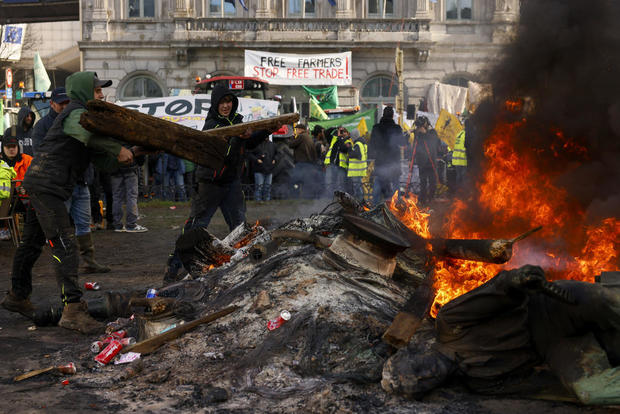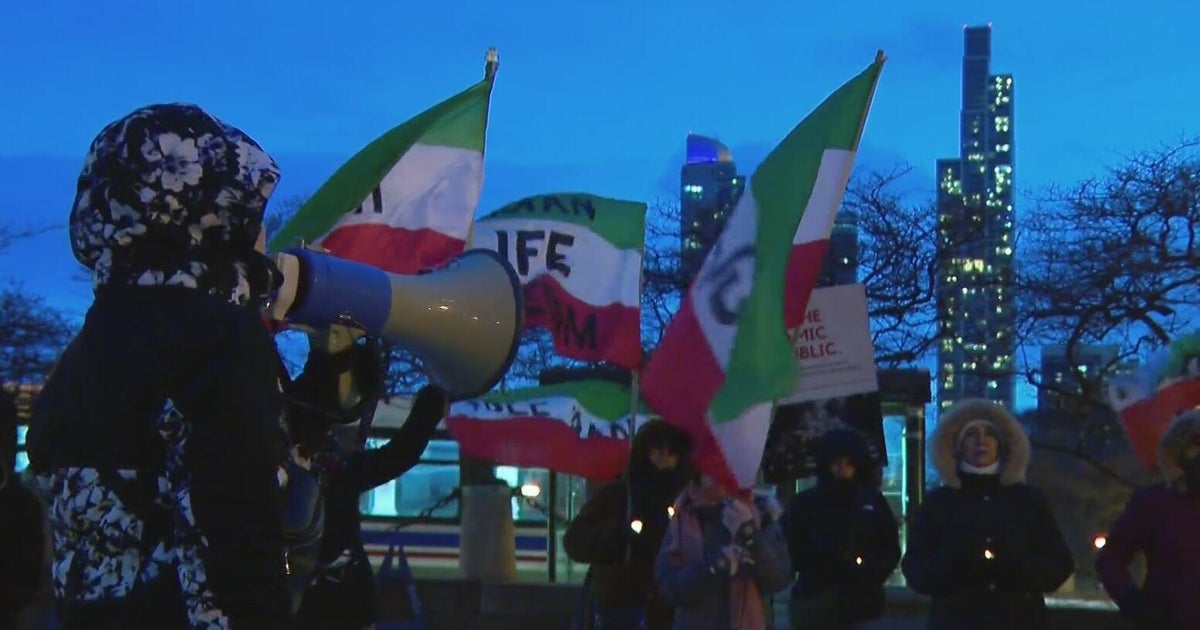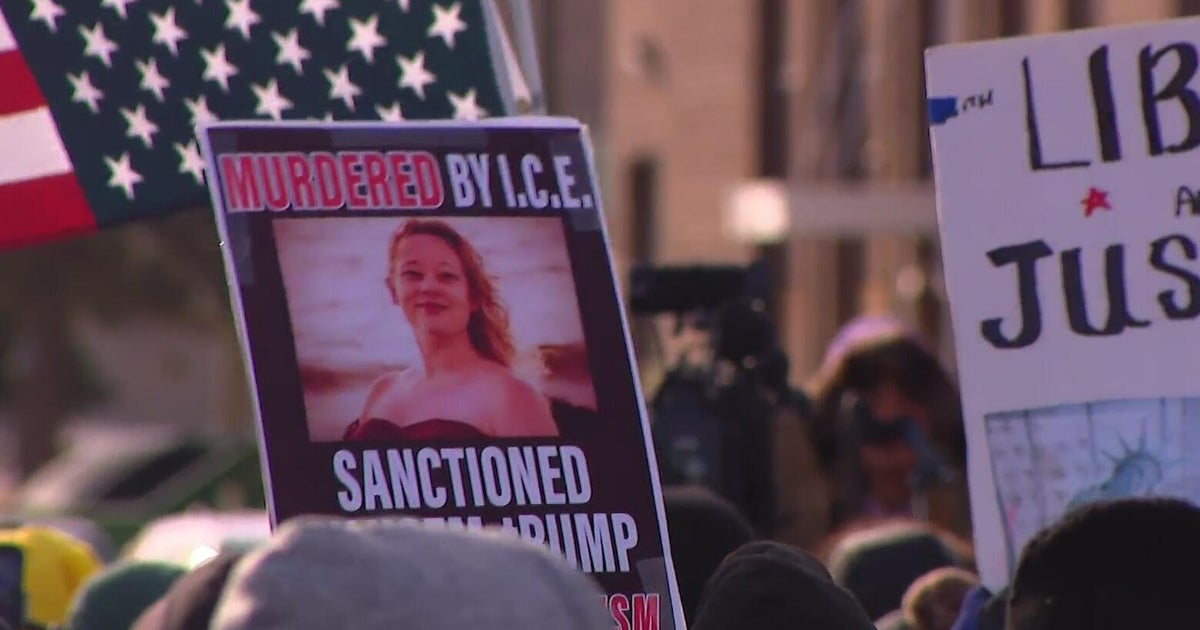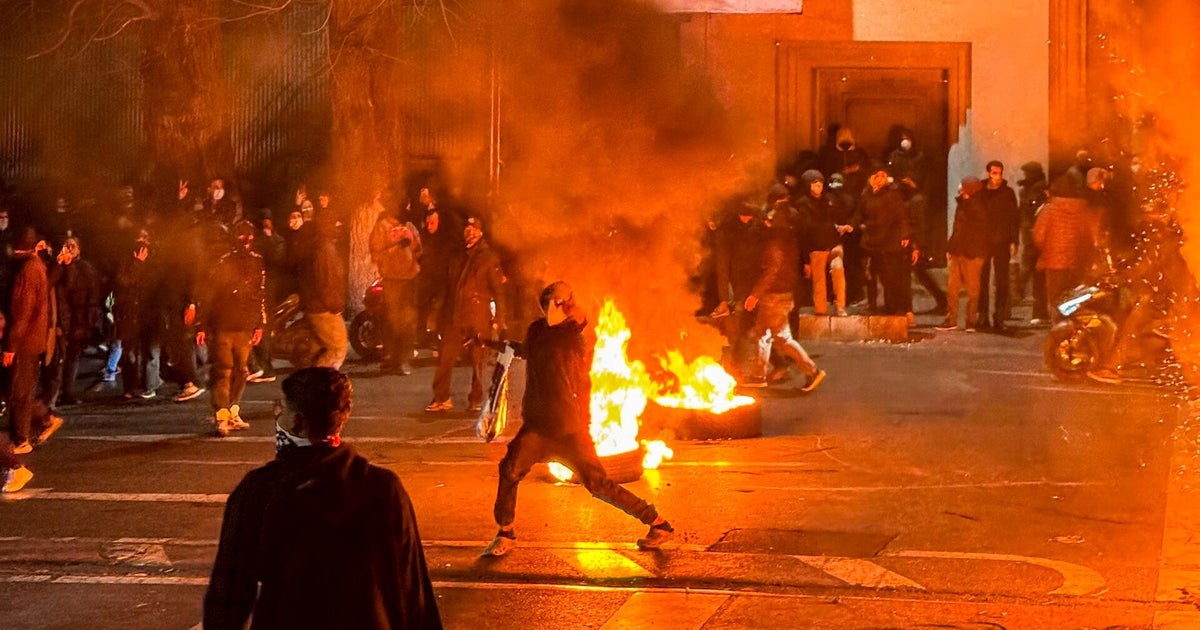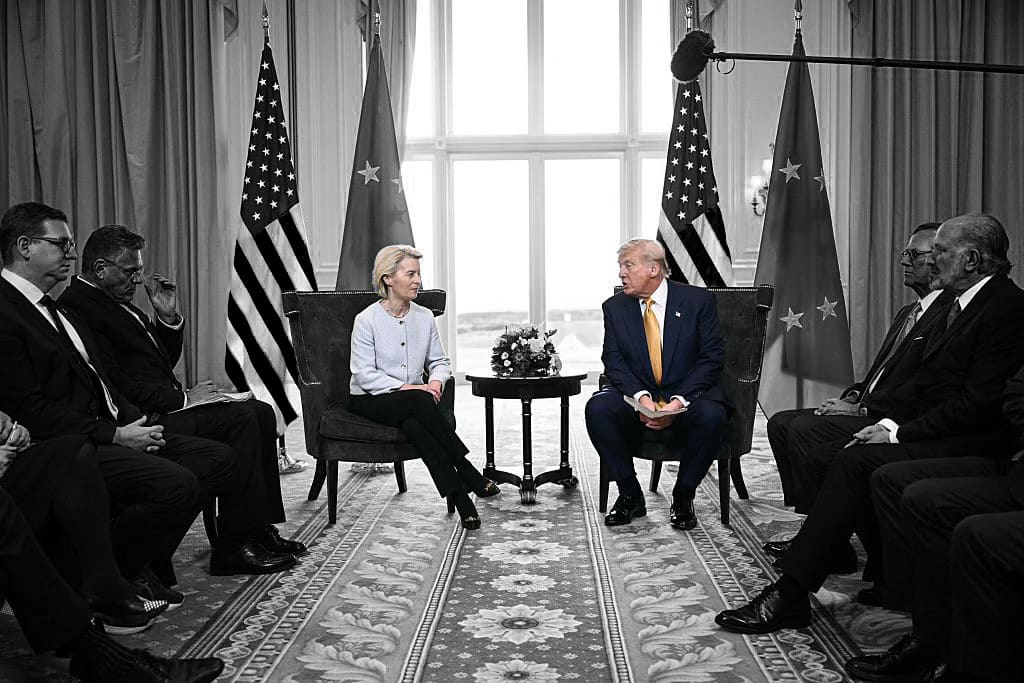European farmers rage at EU parliament in Brussels, but France protests called off after 2 weeks of mayhem
Paris — France's two main farmers' unions have called on members to end their weekslong protest and lift roadblocks they've thrown up on highways around Paris, but the agricultural unrest was spreading elsewhere in Europe. The call to end protests in France came on the same day that thousands of farmers from around Europe converged on Brussels, hoping to make their voices heard at a European Union summit.
They drove tractors into the Belgian capital, hurled eggs and stones at the European Parliament, started fires near the building and set off fireworks as they demanded EU leaders do more to help them with taxes and rising costs.
"No farmers, no food, no future" one banner read.
European farmers have been dealing with ruined crops, loss of earnings and rising costs for the past few years. Climate change has brought heat waves and droughts that meant livestock farmers in many areas had to buy in feed for their animals. Producers who use seasonal workers have been forced to find people earlier than usual for the harvest, thanks to the heat.
The French protests were called off after a series of new measures offered by Prime Minister Gabriel Attal. Just three weeks into the job, he was forced to compromise again after his initial offers failed to quell the disquiet.
Announcing the measures Thursday, Attal offered a mea culpa: "Have we responded to the problem? Evidently not. Have we made mistakes? Clearly."
He promised to protect French farmers by pushing the national interest – saying he wants French food, produced in France by French farmers.
A financial aid package worth $162 million will now be drawn up for livestock farmers, and Attal announced a ban on the import of fruit and vegetables treated with thiaclopride, an insecticide found to be harmful to honeybees. Its use has been banned in the European Union since 2019, but many countries, including the U.S., continue to allow it.
France's Agriculture Minister Marc Fesneau also announced that the government's ambitious plan to reduce the use of pesticides would be put on hold, while the it works on making it simper and easier to implement.
Fesneau said he also wants to work with the European Commission on improving labels on food produced in the EU, to make them more understandable for consumers.
Attal acknowledged that some of the new measures would come with a cost, but added: "It's an investment above all else."
All across the EU, farmers say the increase in green measures is hitting their livelihood by limiting pesticides, implementing new controls and restrictions, and forcing even small producers to adhere to norms and conditions they can't afford.
They say that even where there are EU subsidies, the bloc's bureaucracy means they need a full day to fill out all the paperwork before they see any cash.
Agriculture was not on the agenda for the EU meeting in Brussels on Thursday. However, EU chief Ursula von der Leyen said Brussels would put forward plans to ease the administrative demands – including the layers of bureaucracy – that farmers have criticized. Those plans will be presented at an upcoming meeting of EU ministers.
